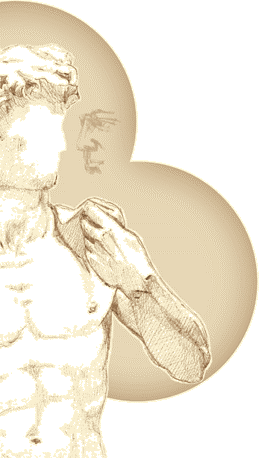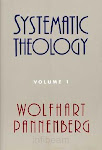Part I, Part II, Part III
This is an article on the nature of worship. References are to Jaroslav Pelikan's five-part marathon history of the development of Christian doctrine. Reference 4:45 would mean book 4, page 45.-- -- --
To begin with, we should be careful with liberal uses of the word “worship” when addressed to saints. Historically it has been used for a lack of a better word before “veneration” became the proper word to express a devotional disposition towards saints.
But some, like Jean de Gerson, went as far as to straightforwardly suggest “adoring” Mary and saluting her as “the goddess of love” is “not going too far” (4:41-42). This, to me, blurs the distinction between “adoration” and “veneration” and undermines the “absolute qualitative distinction” between God and man that was mentioned above.
“Superstitions and abuses” concerning, for example, the relics of saints included “trafficking” and selling them (3:179), historically called the sin of simony. “Idolatry” included treating a creature with greater honor than is his due, namely, said Socinus, “honor that is clearly divine, and requiring from him those things that can and should be requested from God alone” (4:329). It is not explained what kind of honor is “clearly divine”, so this begs the question – yet again.
But elsewhere we find an instance of what can be requested from God alone: it was “essential to avoid … the notion that saints conferred grace” or that they “could rescue souls from hell” (4:261).
But it was as essential to avoid the opposite extreme too, “the hoary objection that the veneration of the saints was idolatrous” (4:261).
The potential threat of devotional practices to the integrity of monotheistic worship has not, of course, gone unnoticed. Counter-measures against excesses of devotion have taken many forms. Above all it has been necessary to remember where the true origin of saints’ honor lay.
The opening verse of the Latin version of the last psalm read: “Praise the Lord in his saints” (Ps. 150:1, Vulg.) and what this meant, explained Bernard of Clairvaux, was that “if I discern something in the saints that is worthy of praise and admiration, I find, when I examine it in the clear light of truth, that though they appear to be admirable and praiseworthy, it is Another than they who is really so, and I praise God in his saints”
The saints’ virtues had their origin in God, not in the saints themselves (4:177). Furthermore, saints are venerated “not for their benefit, but for ours,” since “the saints have no need of our honors, nor do they gain anything as a result of our devotion” (4:176).
One Catholic friend of mine, a layman, offered a few possible symptoms, concrete examples that would imply an unhealthy disposition towards saints. Among these were: “one does not pray directly to God anymore”; “does not understand, that the role of the saints is to direct us to Jesus – see Mary’s advice at the wedding at Cana: ‘Do whatever he says’ (John 2:1-11)”; “is attached to a saint but forgets God”; and “neglects the sacraments and the reading of Scripture through which one gets to know Jesus.”
Clichtove’s treatise from the sixteenth century,
The Veneration of the Saints, traced the development of the practice of veneration, Pelikan comments, “with such balance and care that, despite Protestant attacks, it continued to serve as a model” (4:260) for a considerable time. Through a proper veneration of the saints, Clichtove urged against critique, the glory of God was not diminished but magnified (4:261).
(We find an echo of this in the order of loves. The type of love that pertains to Christian love is charity or
agape, divine self-sacrificing love, the word John used when he said that “God is love [
agape]
”. When we love, agape, our neighbor, we love them through God, who is the source of love, and we love God through them, who are images of God, provided the order of our loves is proper. In this way Christ’s two commandments form one “great commandment”. They are two sides of the same coin.)
All we can take away from the above is that “worshipful adoration” of God means worshiping him for
his own sake; whereas “worshipful respect” of saints means honoring them
not for their own but for God’s sake.
In light of the degree/quality distinction, this, strictly speaking really amounts to neither. They’re not different
qualities of worship, nor are they worship of different
degree. Rather, there’s a difference in one’s basic attitude and understanding of
why one worships. Does one worship the object
for its own sake or for the sake of
something beyond the object?
One could say that if this – one’s basic attitude – is really what we are looking at, if this is the only distinction, it is no wonder that the “accusation of idolatry and the response to it struck at a deep and sensitive point in Christian belief” (2:127). But, as with sacrifice, one’s basic attitude may make a greater difference than we may think. To this too, then, I shall have to return later.
From degree to quality: sacrifice and “basic attitude”Let’s recap again. Here is the crux of the problem set in a historical context:
“From Augustine’s
City of God came the explanation of the fundamental difference between the cult of the saints and the Pagan practices to which Protestant critics were comparing it. The ‘adoration’ paid to the Creator pertained to him alone, the ‘adoration’ of saints was that appropriate to God’s creatures; strictly speaking, ‘the church does not adore saints … but honors them.’ Christ was the only ‘Mediator of redemption,’ but the saints were ‘mediators of intercession.’” (4:261.)
It is probably clear by now that I find this distinction of “adoration to God only” and “veneration of saints” only partly helpful. It differentiates between the
object of honoring, but it does not substantiate as to how the
acts of honoring differ except as far as their object goes. So Augustine’s “explanation” begs the question. Over and over again I have pressed for a difference in the acts themselves, not only in their objects.
But we haven’t said all that can be said about “sacrifice” as a constituent of worship.
I said earlier that sacrifice belonged to both worship and veneration, if – but only if – the difference between them was only a difference of degree. And in this case sacrifice had to be defined vaguely as “something” that could be offered to both God and man. But, as it is, theologically sacrifice is defined as something that belongs to God solely. And in this case, what follows is that the difference between worship and veneration is not, after all, merely a difference of degree, but of quality as well.
Everyone agrees that “the merit of salvation” (4:261) belongs solely to Jesus. There is such a sacrifice which belongs to worship only. We are talking about the sacrifice for
the atonement of sins. Offering such a sacrifice to a creature rather than to the Creator would be idolatry. And asking for forgiveness of sins from a creature rather than from the true God would be idolatry.
The cult of the saints did not imply that “the church offers sacrifices to the [saints], but only to the one God, the God of the [saints] and our God,” explained Remigius of Auxerre centuries ago (3:176). The only one to whom Christ could “offer the sacrifice of his passion,” said Robert Pullen, “was the One whom he was obeying by his suffering” (3:139).
It is the “sacrifice of his passion” (3:139), the “body of Christ” (3:136). The Catholics believe that in the Eucharist the power of Christ’s once-for-all sacrifice – for Christ is not, to be sure, “crucified” each time anew – becomes manifest. (For Christians who don’t hold onto the sacrificial character of the Holy Communion such talk is likely to sound odd, if not blasphemous.)
But it is not only Christ’s suffering that is sacrificed to God only. Worship implies the “sacrifice” of each person’s life to God, understood as “a total commitment” to him only.
One Catholic friend of mine, a priest, explained what “a total commitment” meant for him. A worshipful disposition toward God includes at least the following (which, he was at pains to emphasize, can never be said of a saint): “acknowledging that the recipient of worship is the Creator and thus the rightful Lord of every creature”; “’letting God know’ that he is the rightful Lord of one’s being”; “knowing that you have been created and accepting it, and the voluntary transformation of this knowledge into worship”; “the coming together of humility and freedom in forming your inner attitude”; and “worshiping God unreservedly, that is, obeying him unreservedly.”
In Catholic tradition “worship” is clearly sacrificial in character, whereas other “types of reverence” which are directed to the saints are non-sacrificial. Of the latter, a further distinction is made between ordinary reverence (“dulia”) to saints in general and a higher form of reverence (“hyperdulia”) to Christ’s mother. This said, my friend said that it was important to remember that “hyperdulia” was not a “third” form of reverence in between sacrificial “adoration” and non-sacrificial “dulia”, but it belonged fully to the category of “dulia”.
We finally come to the end of this article. We shall close with saying something about the “basic attitude” which, as noted earlier, affects a difference between worship and veneration. But earlier I questioned its significance: I asked whether
“mere attitude” can make the crucial difference.
But at the end of the day, when all outer criteria for evaluating the “purity” of one’s worship fails, isn’t one’s attitude – largely hidden from observers and fully seen only by God – at the heart of this issue after all?
Does not one’s attitude make all the difference in one’s spiritual – and moral – life? What happens outwardly is not unimportant, but it is secondary; an echo of what takes place in the soul. Isn’t one’s attitude what distinguishes murder from accident, authentic friendship from selfish manipulation – and worship of God from self-love (the story of the praying Pharisee)?




 The topic of the discussion -- virtues, leadership, and their interplay in the modern society -- is very serious. Yet the panelists were able to discuss it in a very encouraging and positive way: not unfrequently were there roars of laughter. The host read exerts (is that the word I'm looking for?) from the book and asked a follow-up question, often a very pointed one, say, about the differences of men and women in leadership.
The topic of the discussion -- virtues, leadership, and their interplay in the modern society -- is very serious. Yet the panelists were able to discuss it in a very encouraging and positive way: not unfrequently were there roars of laughter. The host read exerts (is that the word I'm looking for?) from the book and asked a follow-up question, often a very pointed one, say, about the differences of men and women in leadership. The panelists (from left to right): Oskari Juurikkala, Jan Ahonen, Timo Soini, Alexandre Havard, and Sari Essayah.
The panelists (from left to right): Oskari Juurikkala, Jan Ahonen, Timo Soini, Alexandre Havard, and Sari Essayah.

 The book I translated is finally being published. The publishing event is on September 7th (Monday) at 2.00pm downtown Helsinki at Cafe Aalto, the cafeteria designed by Alvar Aalto.
The book I translated is finally being published. The publishing event is on September 7th (Monday) at 2.00pm downtown Helsinki at Cafe Aalto, the cafeteria designed by Alvar Aalto. Alexandre Havard (s. 1962, Pariisi) on johtajuuskouluttaja ja Havard Virtuous Leadership Instituten (HVLI) perustaja. Hänen kehittämänsä hyveisiin perustuva hyvejohtajuusmalli soveltaa klassista näkemystä ihmispersoonasta nykyajan organisaatioiden tarpeisiin.
Alexandre Havard (s. 1962, Pariisi) on johtajuuskouluttaja ja Havard Virtuous Leadership Instituten (HVLI) perustaja. Hänen kehittämänsä hyveisiin perustuva hyvejohtajuusmalli soveltaa klassista näkemystä ihmispersoonasta nykyajan organisaatioiden tarpeisiin.










 "City" is a Finnish metropolitan lifestyle magazine. Or that's the general image. In truth it's one over-extended restaurant and club advertisement with sporadic sex-related articles to lure in readers. ;-)
"City" is a Finnish metropolitan lifestyle magazine. Or that's the general image. In truth it's one over-extended restaurant and club advertisement with sporadic sex-related articles to lure in readers. ;-)


 A leader has a good memory. By memory (Lat. memoria) I mean much more than just our natural ability of recollection. Neither am I referring to some “mnemo-technical” capacity not to forget.
A leader has a good memory. By memory (Lat. memoria) I mean much more than just our natural ability of recollection. Neither am I referring to some “mnemo-technical” capacity not to forget. Before I introduce a few practical guidelines it is important to remember that, if the fault lay in the foundation, mere white-washing the walls will not suffice.
Before I introduce a few practical guidelines it is important to remember that, if the fault lay in the foundation, mere white-washing the walls will not suffice.
















